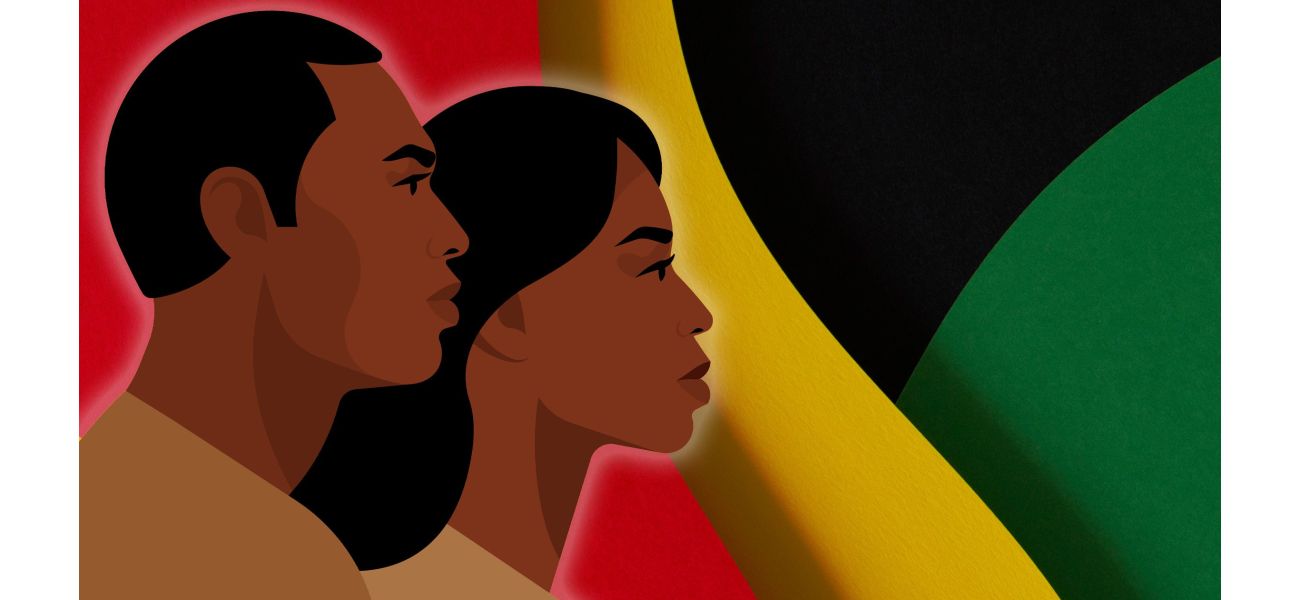Get ready for Black History Month 2024! Find out the theme, dates, and other important details here.
Celebrate Black History Month by embracing the beauty of blackness and the power of knowledge.
September 27th 2024.

In the United Kingdom, October is widely recognized as Black History Month. This tradition has been ongoing for many decades, but what does it truly entail? How did it come to be, and why is it celebrated during a different month compared to the United States?
Black History Month is a national celebration that aims to honor and highlight the significant contributions of individuals with African and Caribbean heritage to British society. It also strives to deepen the understanding of Black history as a whole. This commemoration was first organized by Ghanaian analyst Akyaaba Addai-Sebo, who had previously worked as a coordinator of special projects for the Greater London Council. He collaborated with others to bring this holiday to life.
In an interview with Patrick Vernon, Addai-Sebo, who is considered the architect of Black History Month in the UK, shared the story behind its inception. It was in 1987 when the UK officially adopted this month-long celebration, coinciding with a year full of significant events in the history of Black people. It was the 150th anniversary of Caribbean emancipation, the centenary of Jamaican activist Marcus Garvey's birth, and the 25th anniversary of the Organization of African Unity, an institution dedicated to advancing the progress of African states.
Interestingly, the first Black History Month in the UK took place in October, which is a different month compared to the usual February celebration in the US. The American choice of February was due to honoring the birthdays of abolitionists Frederick Douglass and President Abraham Lincoln. On the other hand, the UK's decision to hold it in October was more practical. Addai-Sebo shared in an interview with Black History Month magazine in 2017 that they chose this month because children had just returned from the long summer vacation, making them more engaged and open to learning.
Every year, Black History Month in the UK has a designated theme. For 2024, the theme is "Reclaiming Narratives," which highlights the importance of recognizing and correcting the narratives surrounding Black history and culture. The Black History Month organization explains that this theme signifies a commitment to correcting historical inaccuracies and showcasing the untold success stories and complexities of Black heritage. It is also about taking control of these stories and honoring the heroes while challenging the narratives that have often downplayed the contributions and achievements of Black individuals, both in the UK and globally.
The official flag of Black History Month has been around for more than a century. According to Briefly, it was created by the Universal Negro Improvement Association in 1920. The flag's colors, black, red, yellow, and green, also known as the Pan African colors, hold significant meanings. Black represents the melanated skin color of Black people, yellow symbolizes optimism, justice, and equality, green represents Africa's natural resources, and red represents the struggles and sacrifices of people of color in their fight against slavery, racism, and colonialism.
If you wish to learn more about Black history and be involved in organizing events, there are various avenues to do so. The University College London has curated a list of books, films, and other resources for those interested in delving deeper. Another notable initiative is Black History Walks, which was established in 2007. These walks are led by experts in their fields and have collaborated with esteemed educational institutions such as the Imperial War Museum, National Portrait Gallery, Museum of Docklands, and the British Film Institute.
For those who want to learn more about Black History Month, there are several places to visit, including the Black Cultural Archives in Brixton, London, the International Slavery Museum in Liverpool, and the Africa Centre in Southwark, London. It is essential to continue educating ourselves and honoring the significant contributions of Black individuals to society. As we move forward, let us remember to share our views and engage in meaningful conversations about Black history and its impact on our world.
Black History Month is a national celebration that aims to honor and highlight the significant contributions of individuals with African and Caribbean heritage to British society. It also strives to deepen the understanding of Black history as a whole. This commemoration was first organized by Ghanaian analyst Akyaaba Addai-Sebo, who had previously worked as a coordinator of special projects for the Greater London Council. He collaborated with others to bring this holiday to life.
In an interview with Patrick Vernon, Addai-Sebo, who is considered the architect of Black History Month in the UK, shared the story behind its inception. It was in 1987 when the UK officially adopted this month-long celebration, coinciding with a year full of significant events in the history of Black people. It was the 150th anniversary of Caribbean emancipation, the centenary of Jamaican activist Marcus Garvey's birth, and the 25th anniversary of the Organization of African Unity, an institution dedicated to advancing the progress of African states.
Interestingly, the first Black History Month in the UK took place in October, which is a different month compared to the usual February celebration in the US. The American choice of February was due to honoring the birthdays of abolitionists Frederick Douglass and President Abraham Lincoln. On the other hand, the UK's decision to hold it in October was more practical. Addai-Sebo shared in an interview with Black History Month magazine in 2017 that they chose this month because children had just returned from the long summer vacation, making them more engaged and open to learning.
Every year, Black History Month in the UK has a designated theme. For 2024, the theme is "Reclaiming Narratives," which highlights the importance of recognizing and correcting the narratives surrounding Black history and culture. The Black History Month organization explains that this theme signifies a commitment to correcting historical inaccuracies and showcasing the untold success stories and complexities of Black heritage. It is also about taking control of these stories and honoring the heroes while challenging the narratives that have often downplayed the contributions and achievements of Black individuals, both in the UK and globally.
The official flag of Black History Month has been around for more than a century. According to Briefly, it was created by the Universal Negro Improvement Association in 1920. The flag's colors, black, red, yellow, and green, also known as the Pan African colors, hold significant meanings. Black represents the melanated skin color of Black people, yellow symbolizes optimism, justice, and equality, green represents Africa's natural resources, and red represents the struggles and sacrifices of people of color in their fight against slavery, racism, and colonialism.
If you wish to learn more about Black history and be involved in organizing events, there are various avenues to do so. The University College London has curated a list of books, films, and other resources for those interested in delving deeper. Another notable initiative is Black History Walks, which was established in 2007. These walks are led by experts in their fields and have collaborated with esteemed educational institutions such as the Imperial War Museum, National Portrait Gallery, Museum of Docklands, and the British Film Institute.
For those who want to learn more about Black History Month, there are several places to visit, including the Black Cultural Archives in Brixton, London, the International Slavery Museum in Liverpool, and the Africa Centre in Southwark, London. It is essential to continue educating ourselves and honoring the significant contributions of Black individuals to society. As we move forward, let us remember to share our views and engage in meaningful conversations about Black history and its impact on our world.
[This article has been trending online recently and has been generated with AI. Your feed is customized.]
[Generative AI is experimental.]
0
0
Submit Comment





